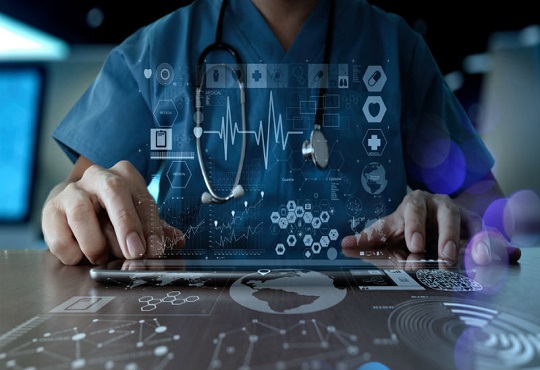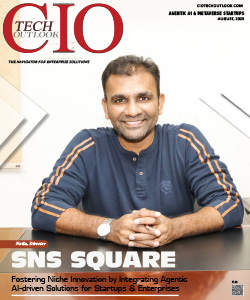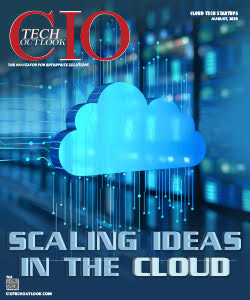Top three Digital Health Trends Defining the future of healthcare
Janifha Evangeline | Wednesday, 20 July 2022, 16:23 IST

Healthcare & technology go hand-in-hand. Digital health trends that include IoT devices, telemedicine, & VR surgical training continue to attract huge investment, which helps the industry improve health equity, globally. Health equity is to make healthcare not just highly accessible but also affordable for everyone. And the driving forces behind health equity are the digital health trends. Let us look at the three most important digital health trends that will define the future of healthcare.
Telehealth
The use of digital communication technologies that include various devices such as computers, mobiles, & tablets to enable the delivery of healthcare services is telehealth. Since the pandemic decreased the number of in-person visits, healthcare providers had to pivot swiftly. According to reports in April 2020 over 43 percent of Medicare primary care visits were conducted via telehealth services. A recent study from Fortune Business Insights reveals that by 2026 the telehealth market will grow beyond USD 185.
Telehealth offers numerous benefits such as expanded healthcare access, reduced contact between patients and healthcare workers, and continuity of care. Owing to technological advancements, patients would want a seamless digital experience for scheduling appointments, obtaining medication & receive essential communication & advice on their health. Instead of being a passing trend, telehealth is anticipated to become an essential component of a comprehensive healthcare plan which helps in improving the patient experience.
19 Labs offers GALE – a telehealth platform, which allows patients for connecting to their existing workflow. GALE provides several clinics for distinct specialties as well as different communication technologies that include H323, traditional voice calls, Zoom video calls, or full integration with partner Telehealth platforms.
IoT & Medicine
A rapidly growing field implementing wearable devices, monitors, & integrated applications for healthcare requirements is Medical IoT. Medical IoT can render enhanced versions of traditional medical devices, such as the smart inhaler – a device, which syncs patient usage with a mobile app, with Artificial Intelligence & Machine Learning technology.
Medical IoT renders numerous benefits that include improved convenience, remote monitoring, and lower costs for patients, & hospitals. DataProt reports a compound annual growth rate of 28.6 percent this year since the Internet of Things is one of the fastest-growing digital health trends and this growth is supported by the global adoption of cloud computing & mobile apps.
Data storage and security are paramount when it comes to healthcare and patients should be able to trust their healthcare providers with sensitive personal information. Apart from protecting personal health information, IoT devices should be reliable in terms of their connections, performance, & real-time data delivery. If there exist any lags or downtime, healthcare professionals might miss critical information regarding a patient’s health.
Although the cloud age is ripe with newer opportunities for healthcare, trust in data security & IoT functionality is still evolving. Therefore, we can anticipate massive investment & funding for improving upon Internet of Things technology in the years to come.
Siemens offers IoT solutions for the medical device industry, which are powered by combining big digital twins with big data, a virtual representation of actual devices, that move in tandem across the lifecycle & connected by digital threads.
Virtual Reality & Augmented Reality
Virtual reality seemed like a novelty which best suited to video games a few years ago, however now, beyond gaming & entertainment, VR/AR technology renders a huge range of practical uses. Virtual reality facilitates surgical training & planning, in healthcare, by helping both surgeons as well as patients for getting more comfortable with procedures.
The healthcare VR market was only USD 2 billion in the year 2019, but according to a recent report from Verified Market Research, it is predicted that this market would reach USD 34 billion by 2027. Since these technologies transcend the short shelf life of many digital health trends and present tangible long-term benefits for medical professionals as well as patients that result in not only saving of time and money but also improve overall patient care, we will witness several new AR/VR applications in the healthcare industry in the years to come.
Floreo provides an amazing platform for adults & children with autism by utilizing VR to educate linguistic, social, behavioral, & motor abilities. The platform is tailored to meet the particular requirements of those with autism spectrum disorder or other developmental impairments as well.
Also, enterprises like Karuna Labs as well as Oxford VR are leading a mission with an aim to help patients who are suffering from chronic pain & mental illness. Although VR is still a developing technology, if it continues to advance, its capabilities would lead to the inventions of exciting developments in various areas that include preventive healthcare, rehabilitation, & cancer therapy.
In a nutshell
Although the technology behind telemedicine, IoT devices, & healthcare apps did not just start appearing in response to the pandemic as existed for several years, it took the pandemic to push healthcare forward as well as for healthcare providers, health institutions, & patients to embrace digital health trends & new technology. Furthermore, with IoT devices, remote and accelerated R&D practices, healthcare providers, as well as patients have now started to understand the value of digital health services, while the funding & investment activity reveal that others also see the value in digital health trends.
Since there is still huge scope for improvement, the healthcare industry is taking innovation seriously and is focusing on building a better future & greater health equity for everyone across the globe.



.jpg)
